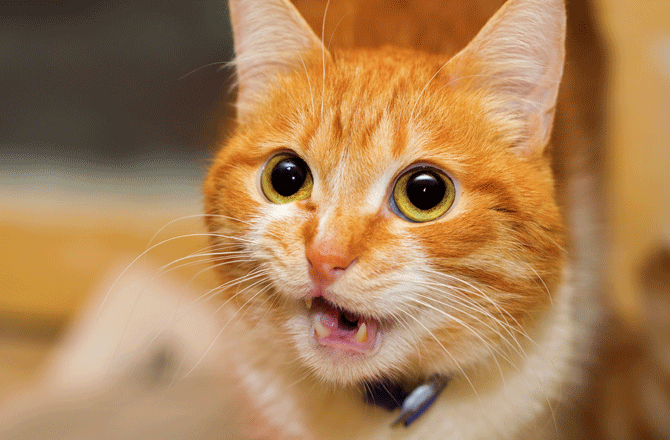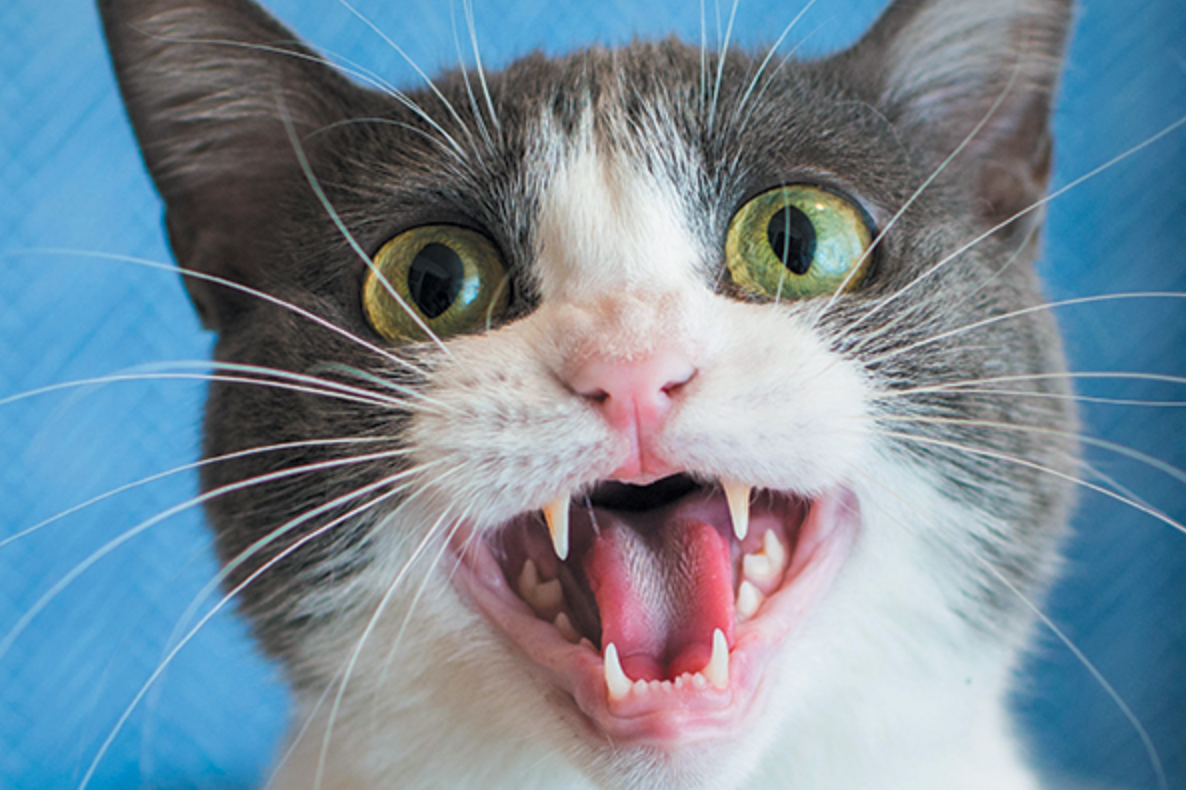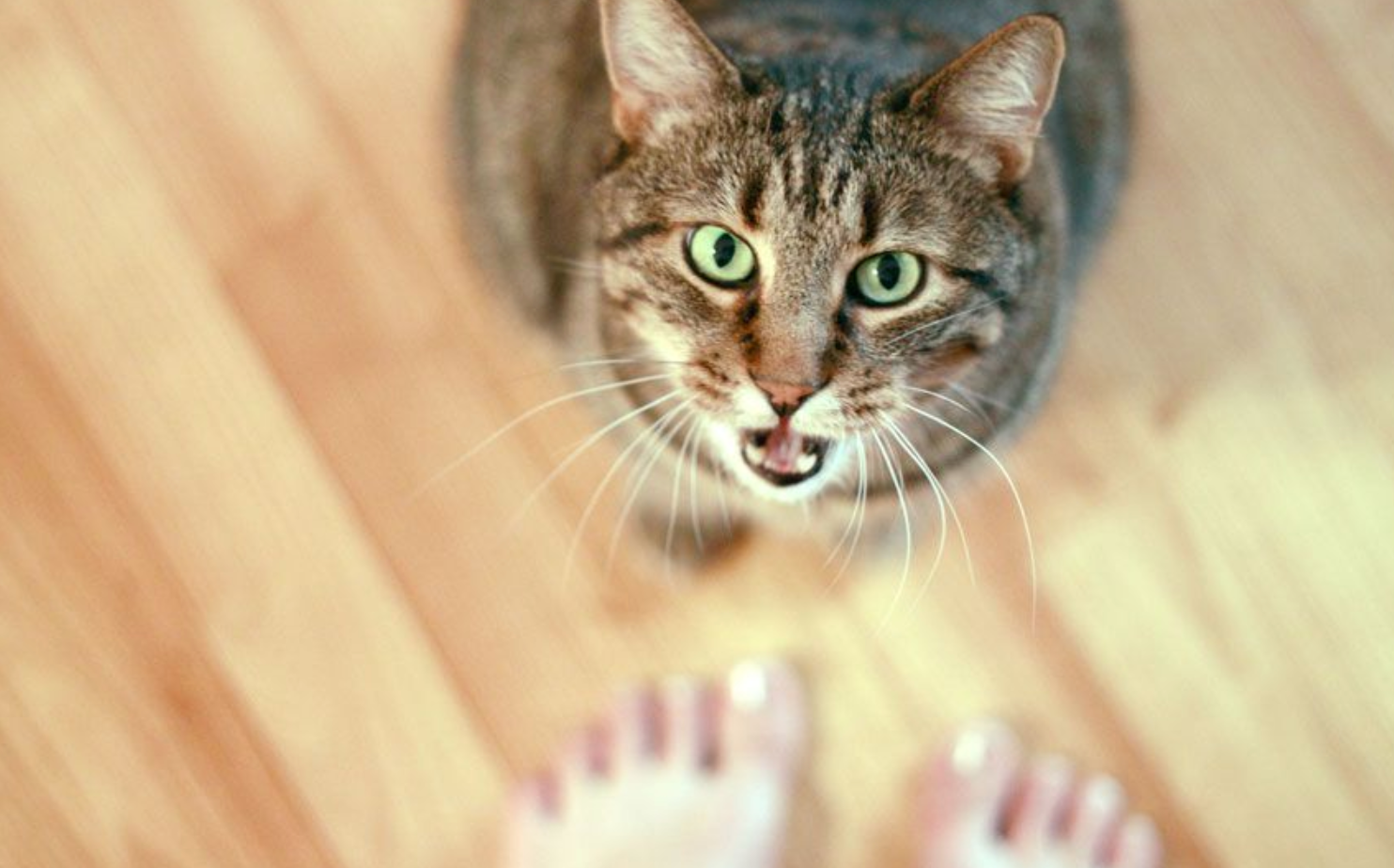6 Reasons Your Cat Won't Stop Meowing At You
Do you find yourself asking, “Why does my cat meow so much?” Does your cat carry on entire conversations with you? Cats communicate through a variety of sounds and vocalizations, from meows to growls to hisses. As kittens, they’ll meow to their moms when they’re cold, hungry, or scared. But as they age, cats mostly rely on body language and other more subtle vocalizations. But did you know that adult cats reserve their meows for communicating with their humans?
Most cat owners can agree that after a while, deciphering our cat’s meows becomes almost second nature. There’s the ever infamous “I’m hungry” meow and the “C’mon, let’s play!” trills. But besides the obvious meows we’re able to easily recognize as cat parents, there are more than a few reasons your cat keeps meowing at you.
1. Illness

Some cats are naturally more chatty than others - Siamese cats are known for being especially fond of expressing their opinions vocally. But if your cat is suddenly meowing more than usual, to the point of excessiveness, this may be a sign of an underlying illness. For instance, cats of all ages can develop an overactive thyroid or kidney disease, both of which can result in excessive vocalizations. It’s important to pay attention to your cat’s behavior - and of course, their meows. They may be trying to tell you something is wrong and a vet checkup may be in order.
2. Stressors

While some cats handle stress differently (like humans), a stressed cat may often become more vocal. Whether you’ve introduced a new pet or there has been a big move or changes made in the home, if your cat is stressed they might turn into a talker. Observe your cat for other signs of stress, and try to root out the source of it. If you can’t locate the source of stress or are unable to change it, be sure to give your cat some extra TLC and quiet time to help calm them down. Vertical space such as a cat tree can furnish some needed space or a hiding place that can reduce your cat’s stress as well as provide a great place to sleep or exercise.
3. Signs of Aging

As cats age, they can sometimes suffer from a form of mental confusion (or cognitive dysfunction), just like humans. This can cause them to become disoriented and cry for no apparent reason, especially at night. A nightlight sometimes can help if your cat becomes disoriented at night, and veterinarians often can prescribe medications that help ease these symptoms.
4. They’re in heat

If your cat is not spayed or neutered, be prepared for a lot more racket. Unaltered females in heat will yowl to attract a mate - and unaltered males will yowl in reply when they smell a female in heat. Spaying and neutering your cat will prevent this caterwauling. On top of that, spaying and neutering can actually improve your pet’s health, curb behavioral issues, and help save on the long-term cost of veterinary care.
5. Attention Seeking

While cats aren’t pack animals like dogs, that doesn’t mean they want to be alone all the time! Cats prefer to be social with the humans they love and trust. So despite the stereotypes of the “aloof” cat, your cat may be meowing to grab your attention because they’re feeling lonely - or even just bored.
If your cat isn’t getting the attention or stimulation they crave, it can result in incessant meows and 4 am kitty wake up calls. Provide your favorite feline with plenty of playtime with you - a tired cat is a quiet cat! But also provide them with toys they can bat around themselves during the day when you’re not home to encourage them to play. Catnip-filled toys are a great choice as the catnip also stimulates and encourages your cat to play - instead of nap all day.
6. Begging

Most pet parents know this meow like the back of their hand: The “FEED ME” meow. Many cats learn that anytime someone walks into the kitchen, if they meow for food there’s a chance they’ll get a bite to eat. And anytime you feed them after they come in meows blaring, you’re reinforcing this behavior. If your cat is a chronic beggar who meows at the top of their lungs, avoid feeding your cat when he cries. Wait until he quiets down to put down food, and don’t give her treats when she meows.




















My cat is 16 years old. He walks around the house about 2am every night and meows very loud. He doesn’t appear to be sick or hurting. When he wakes me up and I talk to him he usually stops and jump in the bed and settled down and go back to sleep. What cat be wrong with him?
I adopted two cats and one the little one all she does is meow i am gong crazy its all day and all night. I cant take it anymore. I dont want to give her up but I cant handle it she has food she has toys she has everything now when she gets scared she crawls into the gross toliet and hides in there and still howls i am going to have to return her.
My one cat is getting up in age. Does a lot of night crying. Or when she wakes up too. I have a night light. Sometimes her cries are deep. She’s OK when you pick her by her tummy she doesn’t like something hurts and she sleeps once in a while with me.
Me and my boyfriend bought at cat in February the cat stayed at his house . He had to live so now the cat stays with me and she meows more than she did at the old house what does this mean and how can I help . She’s also use to staying in the house with ge em an Shepard and now she sleeps in my laundry/ screened in patio area
My 10 yr old cat and 2 days ago she started really meowing and i dont understand why she eats gd and uses the litter box normal plz can u give me any advice
Leave a comment